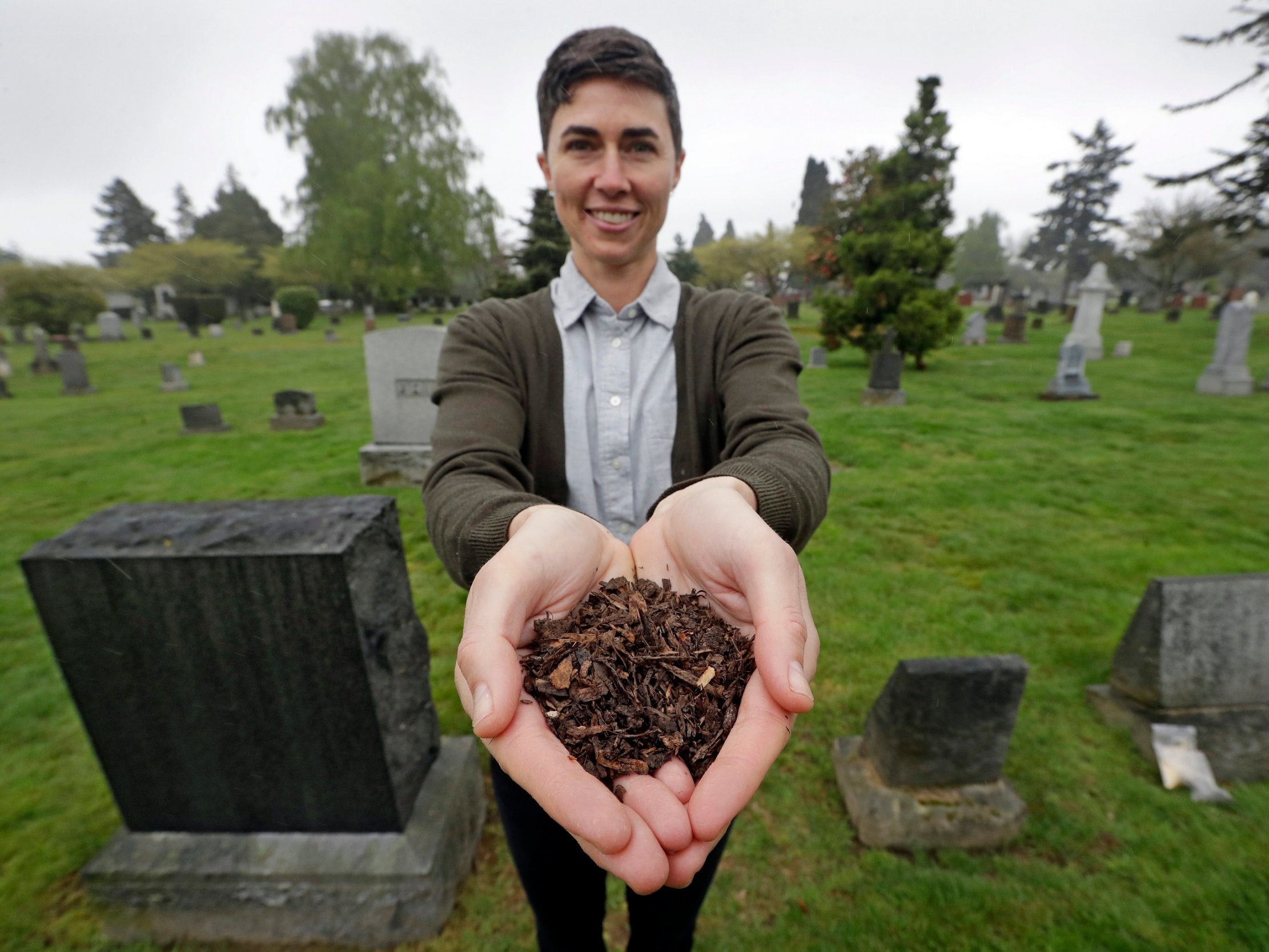Composting of human bodies made legal by US state for first time
Loved ones can spread soil like ashes or use it to plant vegetables or a tree
Your support helps us to tell the story
From reproductive rights to climate change to Big Tech, The Independent is on the ground when the story is developing. Whether it's investigating the financials of Elon Musk's pro-Trump PAC or producing our latest documentary, 'The A Word', which shines a light on the American women fighting for reproductive rights, we know how important it is to parse out the facts from the messaging.
At such a critical moment in US history, we need reporters on the ground. Your donation allows us to keep sending journalists to speak to both sides of the story.
The Independent is trusted by Americans across the entire political spectrum. And unlike many other quality news outlets, we choose not to lock Americans out of our reporting and analysis with paywalls. We believe quality journalism should be available to everyone, paid for by those who can afford it.
Your support makes all the difference.Washington has become the first US state to legalise the composting of human bodies.
Licensed facilities will be able to offer “natural organic reduction,” which turns a corpse into soil in the span of several weeks.
Loved ones are then given the soil to spread like ashes, and can even use it to plant vegetables or a tree.
Supporters say the method is an environmentally friendly alternative to cremation and conventional burial.
Governor Jay Inslee signed the bill into law on Tuesday.
Washington state law previously dictated human remains be disposed of by burial or cremation.
During cremation, carbon dioxide and particulates are released into the air, while in the US conventional burial sees people drained of their blood, pumped full of formaldehyde and other chemicals that can pollute groundwater, then placed in a nearly indestructible coffin, taking up land.
“That’s a serious weight on the earth and the environment as your final farewell,” said senator Jamie Pedersen, the Seattle Democrat who sponsored the measure.
He said the legislation was inspired by his neighbour, Katrina Spade, who was an architecture graduate student at the University of Massachusetts, Amherst, when she began researching the funeral industry.
She came up with the idea for human composting, modelling it on a practice farmers have long used to dispose of livestock.

Ms Spade tweaked the process and found wood chips, alfalfa and straw created a mixture of nitrogen and carbon that accelerates natural decomposition when a body is placed in a temperature- and moisture-controlled vessel and rotated, creating around two wheelbarrows’ worth of soil.
A pilot project at Washington State University tested the idea last year on six bodies, all donors who Ms Spade said wanted to be part of the study.
In 2017, Ms Spade founded Recompose, a company working to bring the concept to the public. It is working on raising nearly $7m (£5.5m) to establish a facility in Seattle and begin to expand elsewhere, she said.
The law, which will come into effect in May 2020, will also allow alkaline hydrolysis, which is already legal in 19 other states. The process uses heat, pressure, water and chemicals such as lye to reduce remains.
Human composting has been legal in Sweden since 2005.
In the UK natural or “green” burials in which people are buried in biodegradable shrouds or caskets are legal.

Join our commenting forum
Join thought-provoking conversations, follow other Independent readers and see their replies
Comments